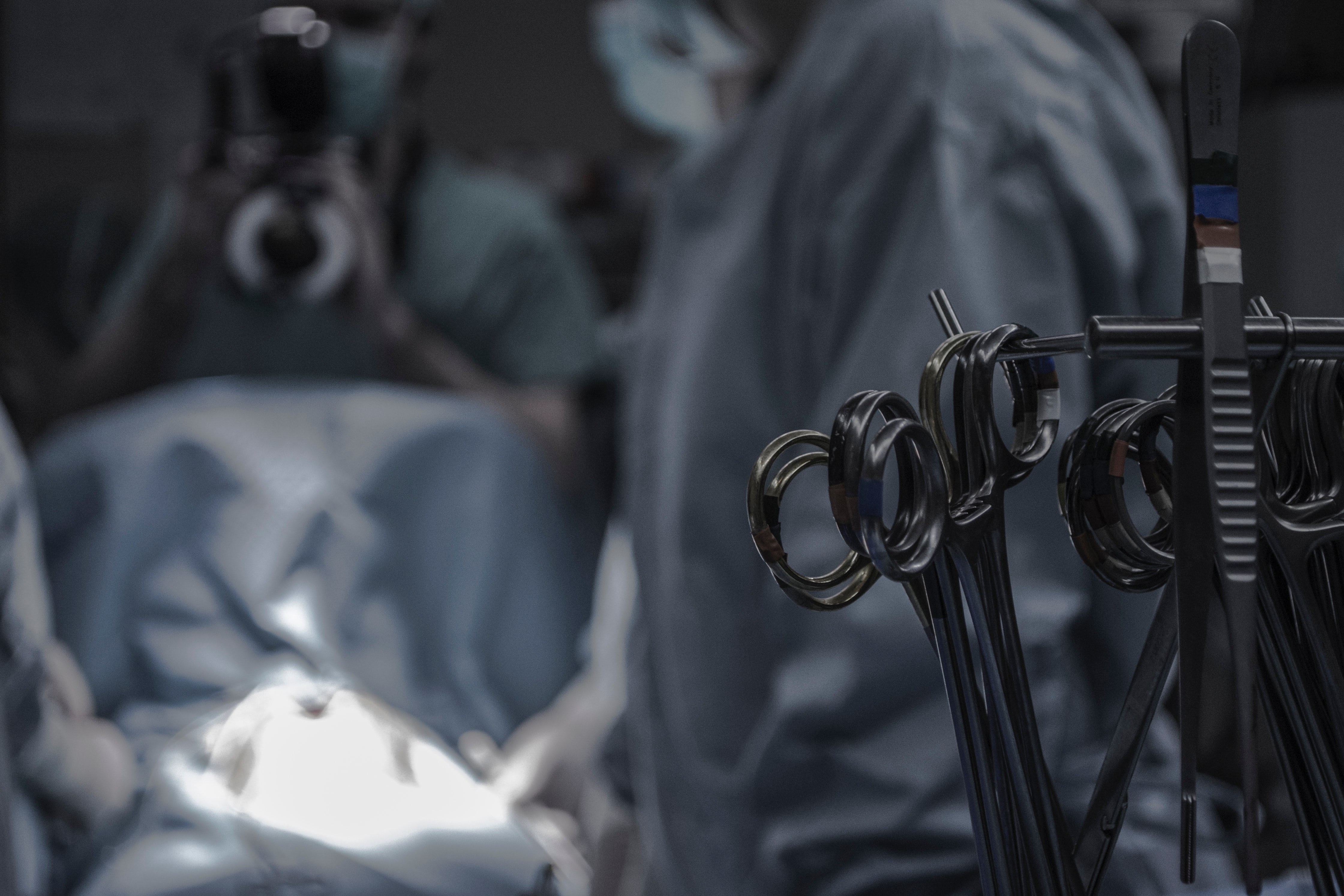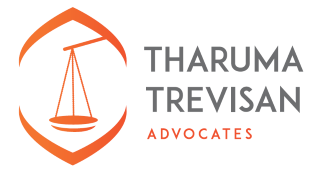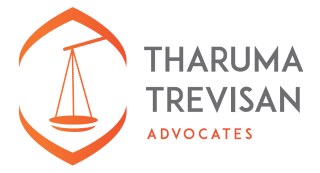
CASE BRIEF THE STATE OF MAHARASHTRA -VS- DR. PRAFUL B. DESAI (2003)4 SCC 601
BY BOAZ KAAWE
The case came as an appeal from the Bombay High court judgement; that ‘evidence cannot be recorded by video conferencing in a criminal trial.’
1. FACTS:
1.1. The complainant’s wife was suffering from terminal cancer. The complainant’s wife was examined by Dr. Ernest Greenberg of Sloan Kettering Memorial Hospital, New York, USA, who opined that she was inoperable and should be treated only with medication. Thereafter the complainant and his wife consulted the Respondent, who was a consulting surgeon practising for the last 40 years. In spite of being made aware of Dr Greenberg’s opinion the Respondent suggested surgery to remove the uterus.
1.2. The complainant and his wife agreed to the operation on the condition that it would be performed by the Respondent. On 22nd December 1987 Dr. A. K. Mukherjee operated on the complainant’s wife. When the stomach was opened ascetic fluids oozed out of the abdomen. Dr. A. K. Mukherjee contacted the Respondent who advised closing up the stomach. Dr. A. K. Mukherjee accordingly closed the stomach and this resulted in intestinal fistula.
1.3. Whenever the complainant’s wife ate or drank the same would come out of the wound. As a result, the complainant’s wife required 20/25 dressings a day for more than 3 1/2 months in the hospital and thereafter till her death.
1.4. The complainant’s wife then suffered terrible physical torture and mental agony. The Respondent later claimed that the complainant’s wife was not his patient. However, the bill sent by the Bombay Hospital showed that the fees were charged by the Respondent. It was the case of the prosecution that the Maharashtra Medical Council had, in an inquiry, held the Respondent guilty of negligence and strictly warned him.
1.5. ISSUE: Whether or not in a criminal trial, evidence can be recorded by video conferencing?
2. HOLDING AND REASONING;
2.1. Yes, recording of evidence by video conferencing also satisfied the object of providing in Section 273 of the Indian Criminal Procedure Code. Court held that, the Accused and his pleader can see the witness as clearly as if the witness was actually sitting before them. That in fact the Accused would be able to see the witness better than he would have been able to, if he was sitting in the dock in a crowded Court room since they would observe his or her demeanour.
2.2. More so that the facility to play back would enable better observation of demeanour. They would hear and rehear the deposition of the witness. The Accused would be able to instruct his pleader immediately and thus cross- examination of the witness would be as effective, if not better.
2.3. That the facility of play back would also give an added advantage whilst cross-examining the witness. The witness would be confronted with documents or other material or statement in the same manner as if he/she was in Court. All these objects would be fully met when evidence was to be recorded by video conferencing. Thus no prejudice, of whatsoever nature, would be caused to the Accused.
2.4. Court in this case also observed that the advancement of science and technology was such that it was possible to set up video conferencing equipment in the Court itself. In that case evidence would be recorded by the Magistrate or under his dictation in open Court. If that was done then the requirements of Section 273 of the Indian Criminal Procedure Code would be fully met.
2.5. And that further to this method, there was however a drawback. As the witness would be in Court there would be difficulties if he/she committed contempt of Court or perjured him/herself and it was immediately noticed that he/she had perjured him/herself. Therefore as a matter of prudence evidence by video-conferencing in open Court would be only if the witness was in a country which had an extradition treaty with India and under whose laws contempt of Court and perjury were also punishable.
2.6. However, that even if the equipment could not be set up in Court, the Indian Criminal Procedure Code contained provisions for examination of witnesses on commissions. Sections 284 to 289 dealt with examination of witnesses on commissions. For that purpose, Sections 284 and 285 were relevant.
2.7. Thus in cases where the witness was necessary for the ends of justice and the attendance of such witness could not be procured without an amount of delay, expense or inconvenience which, under the circumstances of the case would be unreasonable, the Court would dispense with such attendance and issue a commission for examination of the witness.
2.8. Earlier in this case, Dr. Greenberg had refused to come to India to give evidence. His evidence appeared to be necessary for the ends of Justice and Courts in India could not procure his attendance. Even otherwise to procure attendance of a witness from a far of country like USA would generally involve delay, expense and/or inconvenience. In such cases, commissions could be issued for recording evidence.
2.9. And that normally when a Commission is to be issued, the recording has to be at the place where the witness is. Thus Section 285 of the Criminal Procedure Code provided to whom the Commission was to be directed. If the witness was outside India, arrangements were required between India and that country because the services of an official of the country (mostly a Judicial Officer) would be required to record the evidence and to ensure/compel attendance.
2.10. However new advancement of science and technology permitted officials of the Court, in the city where video conferencing was to take place, to record the evidence. Thus where a witness was willing to give evidence, an official of the Court would be deported to record evidence on commission by way of video-conferencing. And the evidence would be recorded in the studio/hall where the video-conferencing would take place.
2.11. The Court in Mumbai would be issuing commission to record evidence by video conferencing in Mumbai. Therefore, the commission would be addressed to the Chief Metropolitan Magistrate, Mumbai who would depute a responsible officer (preferably a Judicial Officer) to proceed to the office of VSNL and record the evidence of Dr. Greenberg in the presence of the Respondent. The officer would ensure that both the Respondent and his counsel are present when the evidence is to be recorded and that they were able to observe the demeanour and hear the deposition of Dr. Greenberg. The officers would also ensure that the Respondent has full opportunity to cross-examine Dr. Greenberg.
2.12. The concerned officer would also ensure that once video conferencing commenced, as far as possible, it was proceeded with without any adjournments. Further if it could be found that Dr Greenberg was not attending at the time/s fixed, without any sufficient cause, then it would be open for the Magistrate to disallow recording of evidence by video conferencing. And if the officer found that Dr. Greenberg was not answering questions, the officer would make a memo of the same.
2.13. Finally, when the evidence had to be read in Court, this would be an aspect which would be taken into consideration for testing the veracity of the evidence. The Magistrate would then proceed to have the evidence of Dr. Greenberg recorded by way of video conferencing.
2.14. CONCCURENCE AND DISSENT:
2.14.1. CONCURRENCE:
2.14.1.1. The Court agreeing with the appellants stated that ‘It must be remembered that the first duty of the Court is to do justice. As was been held in the case of Sri Krishna Gobe versus State of Maharashtra [(1973) 4 SCC 23] Courts must endeavour to find the truth. It was held that there would be failure of justice not only by an unjust conviction but also by acquittal of the guilty for unjustified failure to produce available evidence. And further that the rights of the Accused have to be kept in mind and safeguarded, but they should not be over emphasized to the extent of forgetting that the victims also have rights.’
2.14.1.2. The Court also cited the Supreme Court of USA, in the case of Maryland vs. Santra Aun Craig [497 US 836], where it was held that recording of evidence by video-conferencing was not a violation of the Sixth Amendment (Confrontation Clause).
2.14.1.3. The Court also averred that these principles had also been applied by the same Court whilst considering an analogous provision of the Criminal Procedure Code. In the case of Basavaraj R. Patil v. State of Karnataka [(2000) 8 SCC 740] the question was whether an Accused needed to be physically present in Court to answer the questions put to him by Court whilst recording his statement under Section 313. To be remembered that under Section 313 the words are “for the purpose of enabling the accused personally to explain.” That the term “personally” if given a strict and restrictive interpretation, would mean that the Accused had to be physically present in Court. It was however held by the majority that the Section had to be considered in the light of the revolutionary changes in technology of communication and transmission and the marked improvement in facilities for legal aid in the country. It was also held, by the majority, that it was not necessary that in all cases the Accused must answer by personally remaining present in Court.
2.14.2. DISSENT:
2.14.2.1. It was however submitted that India had no arrangement with the Government of United States of America and therefore commission could not be issued for recording evidence of a witness who was in USA. Reliance was placed on the case of Ratilal Bhanji Mithani v. State of Maharashtra [(1972) 3 SCC 793]. In this case a commission was issued for examination of witnesses in Germany. The time for recording evidence on commission had expired and an application for extension of time was made. It was then noticed that India did not have any arrangement with Germany for recording evidence on commission. At page 798 this Court observed that the provisions contained in Sections 504 and 508-A of the Code of Criminal Procedure contained complimentary provisions for reciprocal arrangements between the Government of India and the Government of a foreign country for Commission from Courts in India to specified courts in the foreign country for examination of witnesses in the foreign country and similarly for Commissions from specified courts in the foreign country for examination of witnesses residing in India.
2.14.2.2. It was submitted that Section 273, Criminal Procedure Code did not provide for the taking of evidence by video conferencing. Emphasis was laid on the words “Except as otherwise provided” in Section 273 and it was submitted that unless there was an express provision to the contrary, the procedure laid down in Section 273 had to be followed as it was mandatory. It was submitted that Section 273 mandated that evidence “shall be taken in the presence of the accused”. It was further submitted that the only exceptions, which could come within the ambit of the words “except as otherwise provided” were Sections 284 to 290 (those dealing with issue of Commissions); Section 295 (affidavit in proof of conduct of public servant) and Section 296 (evidence of formal character on affidavit). It was further submitted that the term “presence” in Section 273 had to be interpreted to mean physical presence in flesh and blood in open Court. It was also submitted that the only instances in which evidence could be taken in the absence of the Accused, under the Criminal Procedure Code were Sections 317 (provision for inquiries and trial being held in the absence of accused in certain cases) and 299 (record of evidence in the absence of the accused). It was also submitted that as Section 273 was mandatory, the Section was required to be interpreted strictly. Later, it was submitted that Section 273 had to be given its contemporary meaning (Contemporanea exposition est optima et fortissimm – The contemporaneous exposition was the best and the strongest in law). And that video conferencing was not known and did not exist when the Criminal Procedure Code was enacted/amended.
Latest Posts
Step by Step Guide to Subdvision of Land in Kenya
Agnetah Muli LL. B, KSL Dip. What is Subdivision? The process of subdivision involves the division of land into two or more parcels. The purpose is to...
COMPREHENDING REDUNDANCY IN EMPLOYMENT LAW – KENYA
“Fairness in all forms of termination is the staple of labour law”- Anon By Quincy Jesse Kiptoo LL.B. (Hons), CPM, Dip in Law The word Redundancy...

